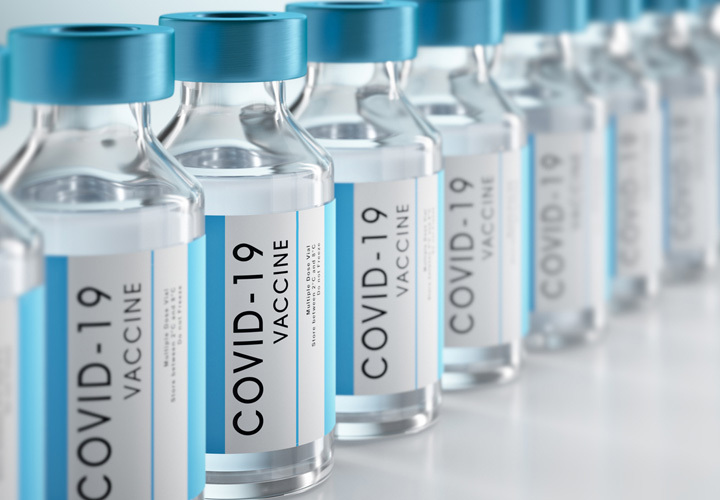Hospitals Can Be Strictly Liable For Allegedly Defective Drugs, Appellate Court Finds
Safety Info February 6, 2023 0 COMMENTS
The recent observations of the court in the Brown v. GlaxoSmithKline LLC and Providence Health System cases have altered the perception of liability of hospitals selling pharmaceutical drugs. Hospitals selling these drugs are now subject to strict liability for alleged drug defects under Oregon law, as stated by the Oregon Court of Appeals in the case cited above.
This decision is directly in contravention with the majority consensus of courts across the US, which are of the opinion that hospitals are not strictly liable for any defective drugs or devices that are used during the course of treatment and medical care of patients.
Most of these courts are of the opinion that hospitals are not liable for these defects because their primary business is not selling drugs or medical equipment, rather it is to provide the best possible treatment and care to their patients. Similar reasoning is applicable to physicians and retail pharmacies, too. This also explains why in most cases of liability arising due to defective drugs or devices, the defendants named are never healthcare providers. The healthcare providers are included as defendants only when there is a case of actual medical negligence caused by them.
In the above-cited Brown case, the plaintiff, a pregnant lady was prescribed and administered Zofran (a drug) while she was in the emergency room. According to the plaintiff, the administration of Zofran caused heart defects in her unborn child, for which she not only held her claim against the drug manufacturer of Zofran but the hospital staff, too. The latter claim was unusual on her account, as precedents have never held healthcare staff accountable for any side effects caused due to the administration of drugs.
After analyzing the facts of the case, the trial court gave out a similar judgment that did not hold the seller of the drug (the hospital) liable. However, the Oregon Court of Appeals reversed this judgment with the reasoning that “a seller is ‘engaged in the business of selling’ a product when selling the product comprises some part of the seller’s ongoing commercial activity . . . [and] one can be a ‘seller engaged in the business of selling’ a product subject to strict liability under ORS 30.920 even if the seller also or primarily provides a service and the sale of the product is incidental to that service.”
Albany wrongful death attorneys state that the Brown ruling, is no doubt, significant and alters the way the liability of drug sellers has been perceived for decades. But the question of whether the judgment should be applied for every such case arising still stays. Shifting the liability on drug sellers will alter the entire dynamic between manufacturers of these drugs and their distributors. It would also require manufacturers, distributors, and healthcare providers to alter their contracts, to adequately address on whose shoulders the liability would fall, in case liability claims arise in the future.
It is to be noted that the Brown judgment is one of its kind. Oregon statutory provisions expressly exclude certain sellers and products from the purview of strict liability. From this, the court concluded that the legislature never wastes its words and if it wanted to, it would have clearly excluded hospitals and pharmacies from strict liability arising from defective drugs or devices. The judgment has generated a buzz in the market, and healthcare providers are concerned, as they could now be held liable for any claims under drug and device litigation as well.
RELATED ARTICLES
Recent Posts
- Major Theft Ring Busted: Over $200,000 in Stolen Lego Sets Recovered in Eugene, Oregon
- Judge Denies Texas’ Bid to Shut Down Migrant Shelter Network in El Paso
- Single Mother in Memphis Seeks Help for Troubled Son Amid Rising Concerns
- California’s Proposition 47 Reform Sparks Intense Political Debate Over Public Safety
- U.S. Man’s Social Security Benefits Denied Over Citizenship Confusion
Categories
Our Supporters
Gold Supporters
Christopher Simon – Atlanta Truck Accident Lawyer
Skiver Law Firm – Phoenix Truck Accident Lawyer
Winer, Burritt & Scott, LLP – Los Angeles Clergy Abuse Law Firm
Michael E. Fenimore P.A. – Pensacola Car Accident Lawyer
Pillsbury & Coleman, LLP – San Mateo Long Term Disability Lawyer
The Law Office of Randall J. Wolfe, P.C. – Oregon City Personal Injury Lawyer
Davies Hothem Injury Law – Buford, GA Car Accident Attorney
Houston Federal Criminal Defense Attorney
Darrow Law Firm – Houston Federal Crime Lawyer
Kansas City Personal Injury Lawyer
Atlanta Truck Accident Attorney
Aitken *Aitken* Cohn Trial Lawyers – Santa Ana Personal Injury Attorneys
Dawson Law Group- Portland Personal Injury Attorneys
CT Mediation Center- New Haven Family Law Attorney
Little Rock Personal Injury Lawyer
Katy Car Accident Lawyer
Franklin Divorce Attorney
Palermo Law- Long Island Personal Injury Lawyer
Dan Rose – San Francisco Car Accident Attorney
Taylor Siemens – Liberty, MO Personal Injury Attorneys
Pfeifer Law Firm – Little Rock Car Accident Lawyer
Walkup, Melodia, Kelly & Schoenberger – San Jose Car Accident Attorney
Solomon, Dwiggins, Freer & Steadman – Las Vegas Business Litigation Lawyer
Roane Law – Asheboro NC Car Accident Lawyer
Dorsch Law Firm – Overland Park Estate Planning Attorney
The Tennessee Sledgehammer – Hermitage, TN Car Accident Lawyer
Cook Law Group – Gainesville, GA Car Accident Lawyer
Simon Bridgers Spires – Atlanta Personal Injury Lawyer
Injury Law Associates – Kansas City Motorcycle Accident Lawyer
Potts & Potts – Honolulu Personal Injury Attorney

